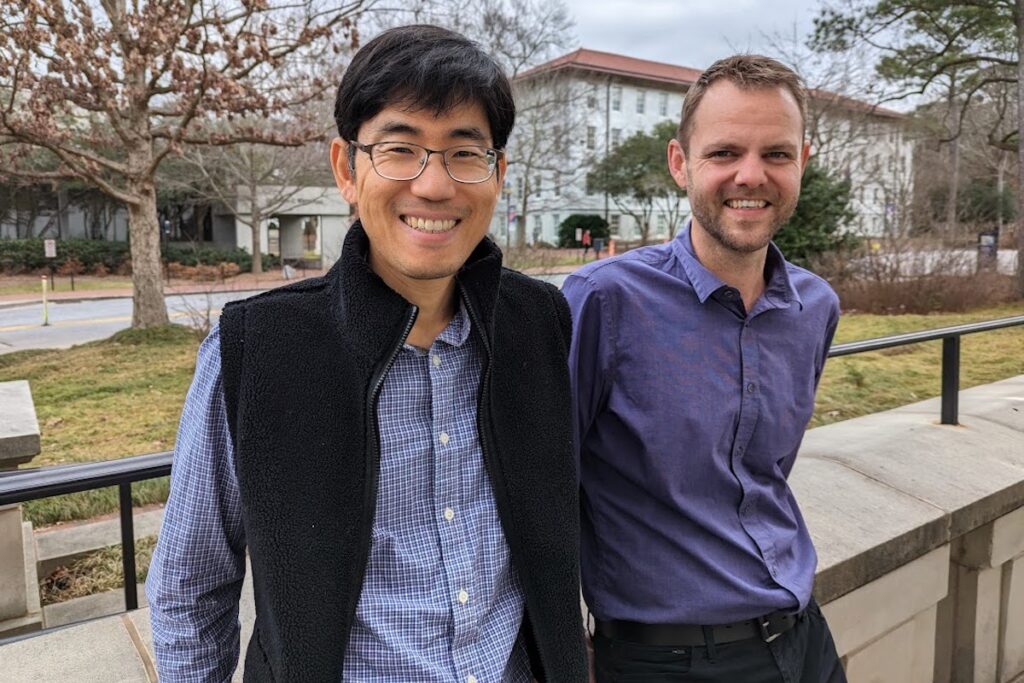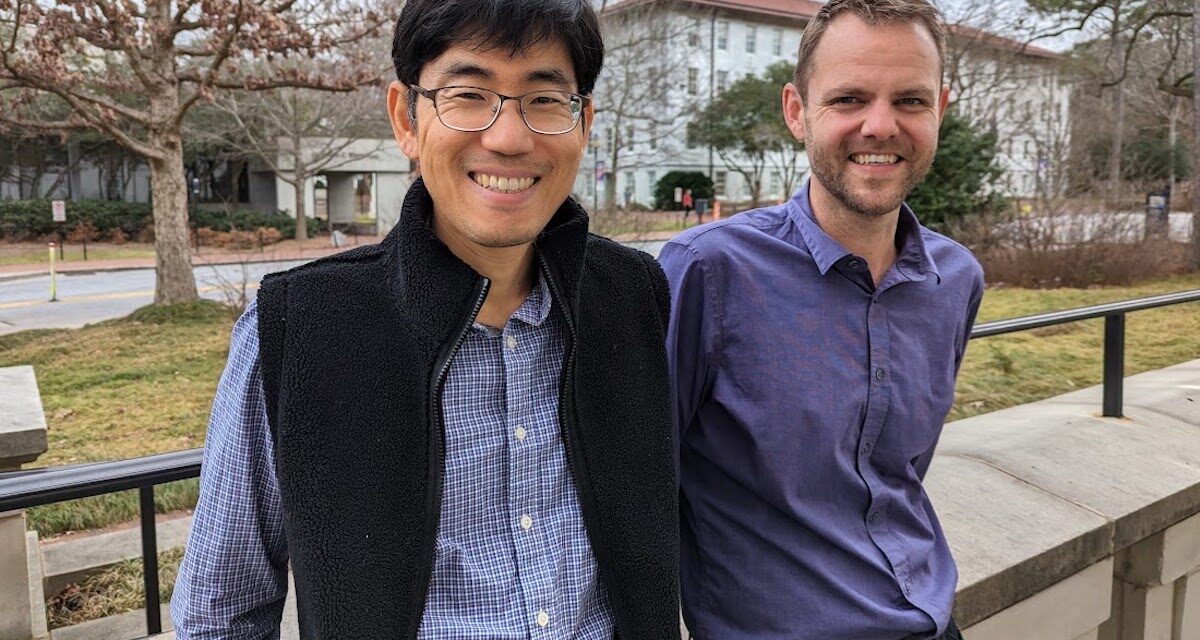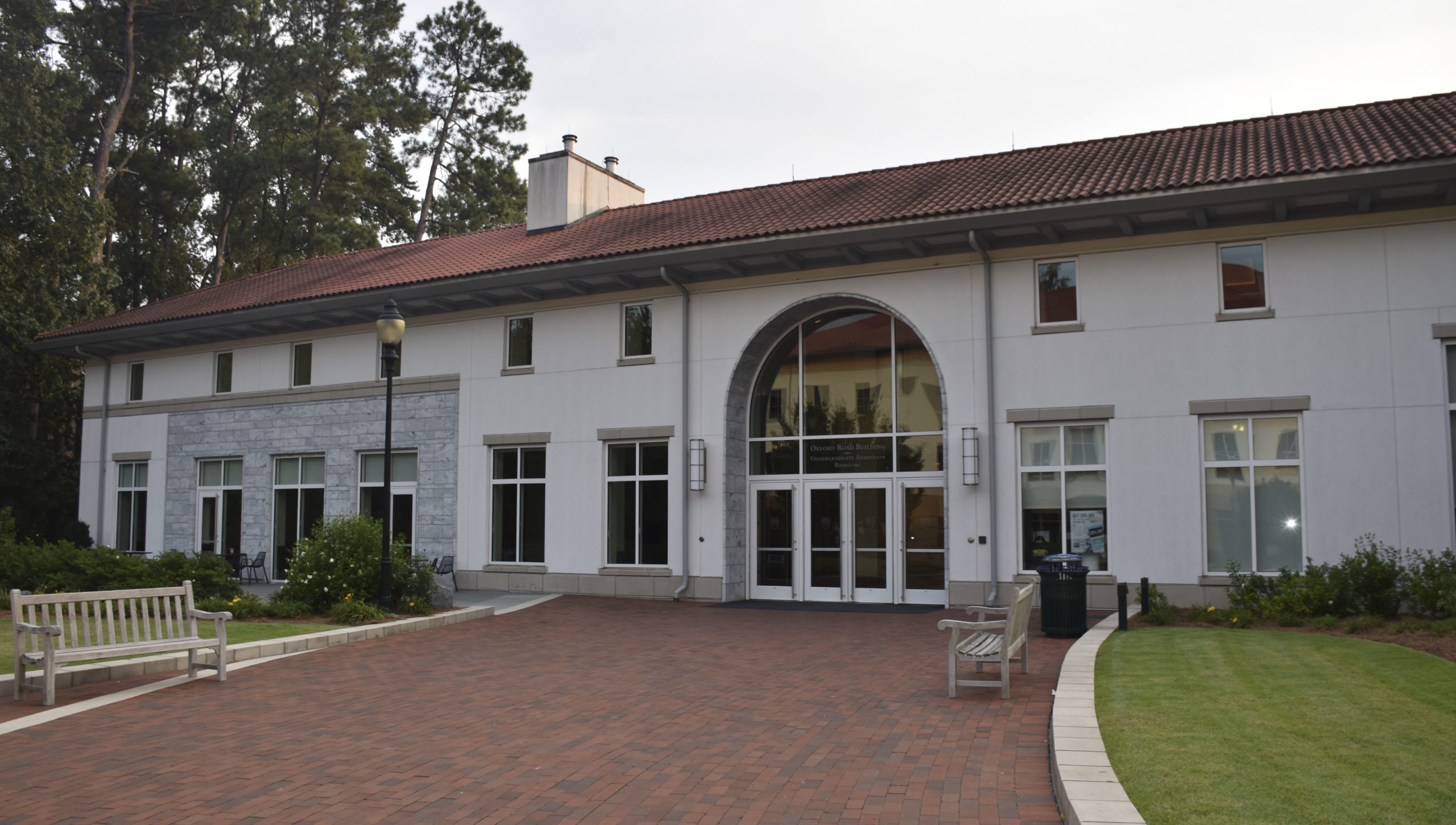The W. M. Keck Foundation awarded Associate Professors of Physics Minsu Kim and Justin Burton $1.2 million on Jan. 30 to explore how airborne microbes affect Earth’s ecosystem. Kim and Burton will use this three-year grant to conduct research with collaborators from the University of Oregon.
The Keck Foundation, which aims to support “outstanding science, engineering and medical research,” has awarded over 6,500 grants totaling $2.2 billion in grant money since 1954. The foundation places a special emphasis on “high-risk” projects with the potential for “transformative impact,” including questions that present unconventional approaches to “intractable” problems or challenge the “prevailing paradigm.”
Though microbes — microscopic organisms too small to be seen with the naked eye — have been found to thrive in marine and soil environments, growing scientific evidence has shown that atmospheric microbes affect rainfall, land fertilization and food production. However, not much is known about how these microbes adapted to living in the air.
“My lab, in general, studies physics problems, oftentimes at the interface of Earth sciences,” Burton said. “For example, one thing that we study in my lab is glaciers and the motion of giant icebergs at the ice-ocean interface and what kind of physics we can use to understand that at a fundamental level.”

The W. M. Keck Foundation awarded Associate Professors of Physics Minsu Kim and Justin Burton $1.2 million to explore how airborne microbes affect Earth’s ecosystem. Courtesy of Emory University
A few years ago, Burton’s lab developed an interest in atmospheric particles, specifically how they stay suspended in the air for so long, despite the large size of the particles. In partnership with University of Oregon research scientist Joshua Méndez Harper, Burton developed an acoustic levitation system to levitate particles and expose them to different humidities and ultraviolet light.
“There are some bacteria that produce a protein that helps to nucleate ice crystals in the atmosphere,” Burton said. “One question that people don’t understand is, are they just freely floating up there because they got blown up there and that’s it? Or is there some kind of a community up there too?”
While Burton was applying for the Keck award, the organization was asking for “big ideas.” So, Burton partnered with Kim to grow bacteria on particles levitated in the laboratory using sound waves.
“We’re going to study their metabolism and physiology and how they are able to survive and adapt all up in the atmosphere,” Burton said.
Burton said he hopes to use the Keck award to fund the construction of a series of acoustic levitators that will culture airborne microbes while altering the pressure, temperature, humidity and radiation. He also hopes to test different species, such as E. coli, and observe how they evolve over time.
According to Derrick Rodriguez (25C), who works on the acoustic levitator project with Michelle Wang (26G) in Burton’s lab, Kim’s lab is focused on the bacterial and microbe facet of the project. Meanwhile, Burton’s lab works on getting the acoustic levitator to float different metals, objects or glass beads.
The apparatus consists of two domes stacked on top of each other, including several small speakers that use sound waves to levitate particles. Rodriguez explained that the sound waves form a “pocket” from two sinusoidal waves, which traps particles.
“We’re also adjusting the voltage and the amplitude of the sine waves, just to make sure it fits the particle and see how long we can levitate it for the vacuum,” Rodriguez said.
Kim and Burton’s collaborators at the University of Oregon — including Harper and Professor of Earth Sciences Josef Dufek — also plan to build solar-powered ultralight balloons containing GPS sensors. Researchers will send the balloons across the country, and during their flight, the balloons will capture bacteria from wildfire smoke and other particles in the air within the pores of tiny sponges.
The balloons will eventually descend by parachute in Atlanta, where researchers will collect the specimens and conduct experiments at Emory.
Associate Professor of Physics Minsu Kim did not respond for comment.
Ashley Zhu (she/her) (25C) is from Dallas, Texas, majoring in biology and minoring in sociology. She is the vice president of recruitment for the Residence Hall Association, a sophomore advisor for Raoul Hall and a staff writer for the Emory Undergraduate Medical Review. She is involved in cell biology research at the Pallas Lab and is a BIOL 141 Learning Assistant. Zhu enjoys FaceTiming her dog, stalking people's Spotify playlists and listening to classical music in her free time.





